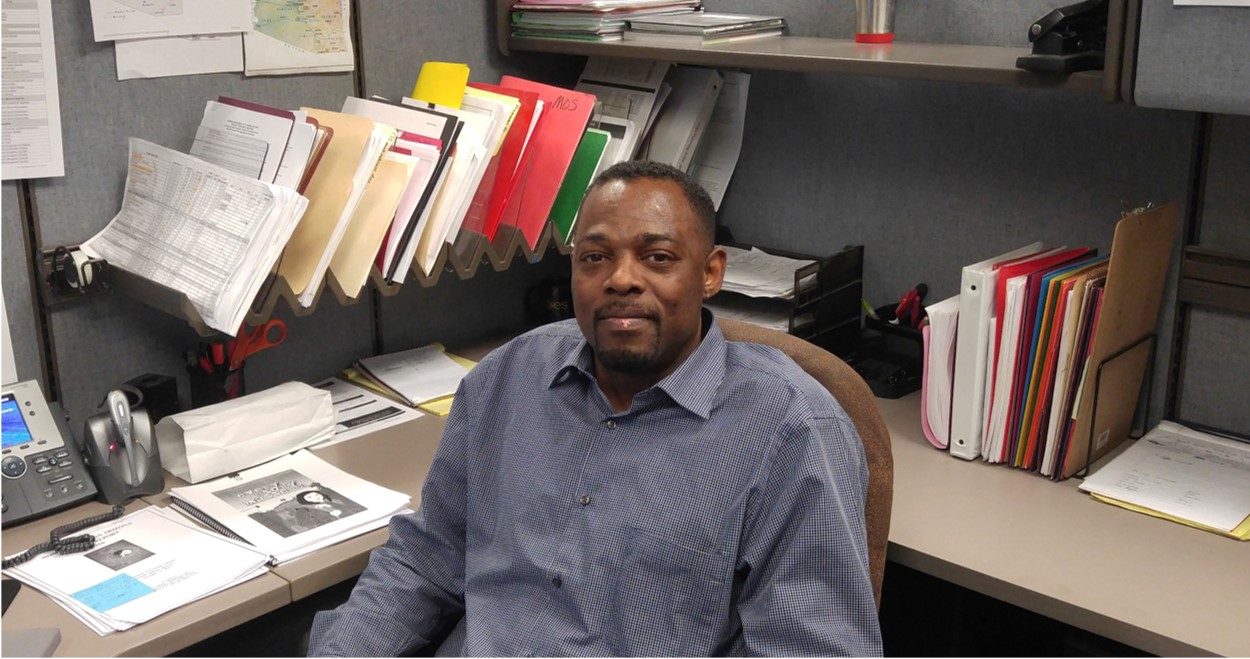Home Is Where the Heart Is
Homelessness is a day-to-day fight for survival. Many may feel invisible to society and often wonder if anyone even cares about them.

Alfred Edwards cares deeply.
The Division of Aging and Adult Services (DAAS) State Homeless Coordinator’s passion to help those in need is rooted in his own personal experience with homelessness after he moved to Phoenix from Fort Wayne, Indiana.
“At the time, my parents were separated and I moved to be with my dad,” said Edwards.
A Navy veteran, Edwards’ father suffered from Traumatic Brain Injury (TBI) syndrome after a car accident on base. The effect of that injury, and some bad luck, resulted in Edwards and his father being homeless for a short period of time. Edwards said the challenge for his father was the inability to obtain the necessary services, as there was not a lot of information on TBI at that time. As a result, he often found himself transporting his father to different locations to receive the services he needed.
The struggles of his father, and being homeless, motivated Edwards to examine the issue of veterans and homelessness. After earning his bachelor’s degree in communications from Arizona State University, Edwards established AZ Veteran Supportive Services. His non-profit focused on assisting veterans suffering from Post-Traumatic Stress Disorder (PTSD) and TBI. Edwards extended his services to the Arizona Veterans Affairs (VA) office and he was offered a contract to work with the PTSD and TBI unit.
“We focused on assisting veterans with re-entry into society by way of job training, social skill development, et cetera,” said Edwards. “We also made sure they were able to attend any medical appointments they had.”
The efforts of Edwards and his colleagues helped bring attention to the need for improved services for veterans suffering from PTSD and TBI.
“We worked hard to make sure veterans had what they needed,” said Edwards. “[However] Four years later, I realized my services were no longer needed.”
Despite no longer being affiliated with the VA, Edwards’ passion for helping the homeless never faded.
“Homelessness continues to grow, and there is still a need for additional funding to help those in need,” said Edwards. “The homeless come in all shapes and sizes, and they have different reasons as to why they are homeless. Many people assume homelessness is a result of the choices made by the individual, but many are looking to escape domestic violence; some are runaway teens couch-surfing.”
Regardless the reason someone is homeless, Edwards’ goal is to help these individuals transition from homelessness to independent home living. What advice he would give them?
“Do not be afraid to ask for help,” said Edwards. “Don’t let pride prevent you from accessing the resources available to you and your family.”
Alfred Edwards understands what it means to be homeless. His dedication and compassion should inspire us all to find ways to help those on the streets find a place they can call home.
By Vance Phillips Jr.

